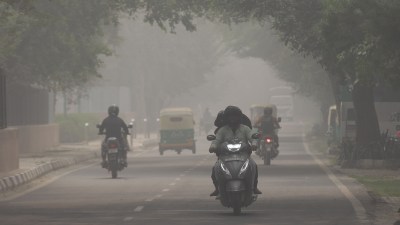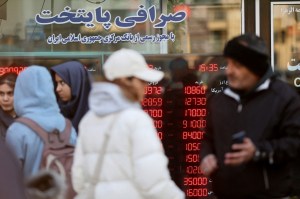Beijing to New York
Cynicism is the abiding leitmotif of these times and it is exceedingly easy to be dismissive about international conferences of the kind t...

Cynicism is the abiding leitmotif of these times and it is exceedingly easy to be dismissive about international conferences of the kind that is currently unfolding at the UN headquarters in New York. The rather amusing spectacle of respectable women MPs, clawing and elbowing their way to New York at state expense in order to attend the jamboree only adds to the general scepticism. Another shopping trip disguised as Noble Cause? For many who clamour to get air-borne, this indeed is the case. Yet the special session of the United Nation8217;s General Assembly marks five years since the world conference on women took place in Beijing, and is meant to be a serious assessment of just how far 189 nations have got in achieving the objectives of the Platform for Action that they had negotiated and agreed upon at the Chinese capital in 1995.
Beijing8217;s Platform of Action was meant as a road map to advance the women8217;s cause in four broad areas: economic, political, social and legal, including human rights. At the end of five years, much of that has remained just so many dashes and dots on paper. After all, two-thirds of the world8217;s illiterate population are still women. But there are some stirrings that need to be noticed, applauded and replicated. In Switzerland, a year after Beijing, new legislation provided, for the first time in that nation8217;s history, equal pay for equal work; while in Nigeria changes in the law ensured, again for the first time, that women could inherit land.
Political representation of women notched a few gains even in countries like Qatar, where women actually won for themselves the right to vote. Innovations in education, like the new distance learning programmes, brought fresh hope to whole communities of illiterate women in places like Pakistan and Mongolia. And women everywhere stood to benefit from attempts to expand women8217;s human rights at an international level. For instance, rape is now recognised as a crime by the international war crime tribunals, with the Rwanda Tribunal filing in 1997 its first indictment for rape and sexual abuse.
Violence against women continues to be an issue of great concern in India and the country status report presented at the UN General Assembly this time underlined this, after quoting the latest figures from the National Crime Records Bureau that indicated a 40 per cent increase in sexual harassment cases. It is an issue over which the Indian government, quite rightly, faced considerable embarrassment.
Five years ago in Beijing it had grandly made numerous promises to address violence. Today, it has had to acknowledge before the world community that very little has been achieved in actual terms, with the country8217;s highest body dealing with women8217;s issues the National Commission for Women languishing, its recommendations largely ignored. The ultimate proof that women in India have made little progress lies, of course, in the continuing decline in the sex ratio. There is so much to be done, and very little time to do it in. Indeed, if the women MPs currently participating in the special session in New York come back with a renewed sense of purpose, they can be forgiven their impetuosity and love of shopping. But they must get to work, and quickly.
- 01
- 02
- 03
- 04
- 05































